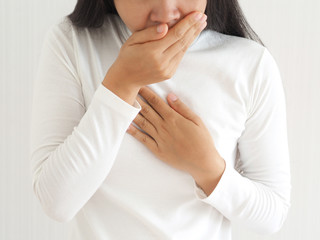
Have you ever fallen ill after consuming something questionable? It's quite possible you encountered the norovirus, often referred to as the "stomach flu" or "stomach bug." As the primary cause of foodborne illnesses in the United States, especially prevalent during the winter months, it's crucial to adopt preventive measures to counter a potential norovirus outbreak. Here are the top four tips for both treating and preventing norovirus:
AFC Urgent Care Dedham has come up with helpful tips that can prevent norovirus and help keep it away from your life.
1. Proper Handwashing to Prevent Norovirus
While there's no vaccine or pill to guard against norovirus, maintaining good hygiene significantly reduces the risk. The CDC recommends thorough handwashing:
- After using the toilet and changing diapers
- Before eating, preparing, and handling food
- Before administering medication to someone
Norovirus can be present in bodily excretions before symptoms appear, underscoring the importance of regular and thorough handwashing with soap and water.
2. Safe Food Handling for Norovirus Prevention
Practicing safe food handling is crucial to avoiding outbreaks:
- Wash all fruits and vegetables before preparation and consumption
- Ensure proper cooking temperatures, as the virus is resistant to heat
- If unwell, refrain from serving or handling food, especially in food establishments
The CDC extends the recommendation to stay home to prevent virus spread in schools, workplaces, and other settings with large populations.
3. Cleaning Contaminated Areas and Clothes Affected by Norovirus
Cleaning and disinfecting contaminated areas play a crucial role in reducing norovirus spread. If dealing with a family member or someone under your care who has the virus:
- Clean frequently touched surfaces regularly
- Wear rubber or disposable gloves, then disinfect using a bleach-based household cleaner
- Dispose of trash and wash hands
- Wash contaminated clothes with detergent in hot water and high-heat drying to eliminate germs
But what if you still contract norovirus despite preventive efforts?
Norovirus can be persistent, causing symptoms like diarrhea, vomiting, abdominal discomfort, and occasional cramping. Seeking medical assistance is advised if symptoms persist beyond three days. People with norovirus infection should refrain from returning to work or school until at least three days after all symptoms subside, and strict hygiene and frequent handwashing are essential, as some individuals may continue shedding the virus for up to two weeks after recovery. A dry diet, featuring items like rice, bread, bananas, and clear fluids, is recommended as norovirus symptoms diminish.
4. Managing Norovirus Symptoms and Seeking Medical Help
If you find yourself affected by norovirus, you can alleviate symptoms at home. Common symptoms include diarrhea, vomiting, abdominal discomfort, and occasional cramping. Seek medical help if symptoms persist for more than three days. Individuals with norovirus should refrain from returning to work or school until at least three days after all symptoms have subsided. It's essential to note that some people may remain contagious for about three days after recovery, while others may continue shedding the virus in their feces for up to two weeks.
AFC Urgent Care Dedham Can Help With Norovirus
AFC Urgent Care Dedham is here to assist in your recovery. We operate seven days a week, offering both walk-in and appointment services. Conveniently pay your AFC Urgent Care Dedham bill online with just a few clicks. We are dedicated to helping you combat norovirus and get back to your daily routine.
AFC Urgent Care Dedham accepts most insurances!


